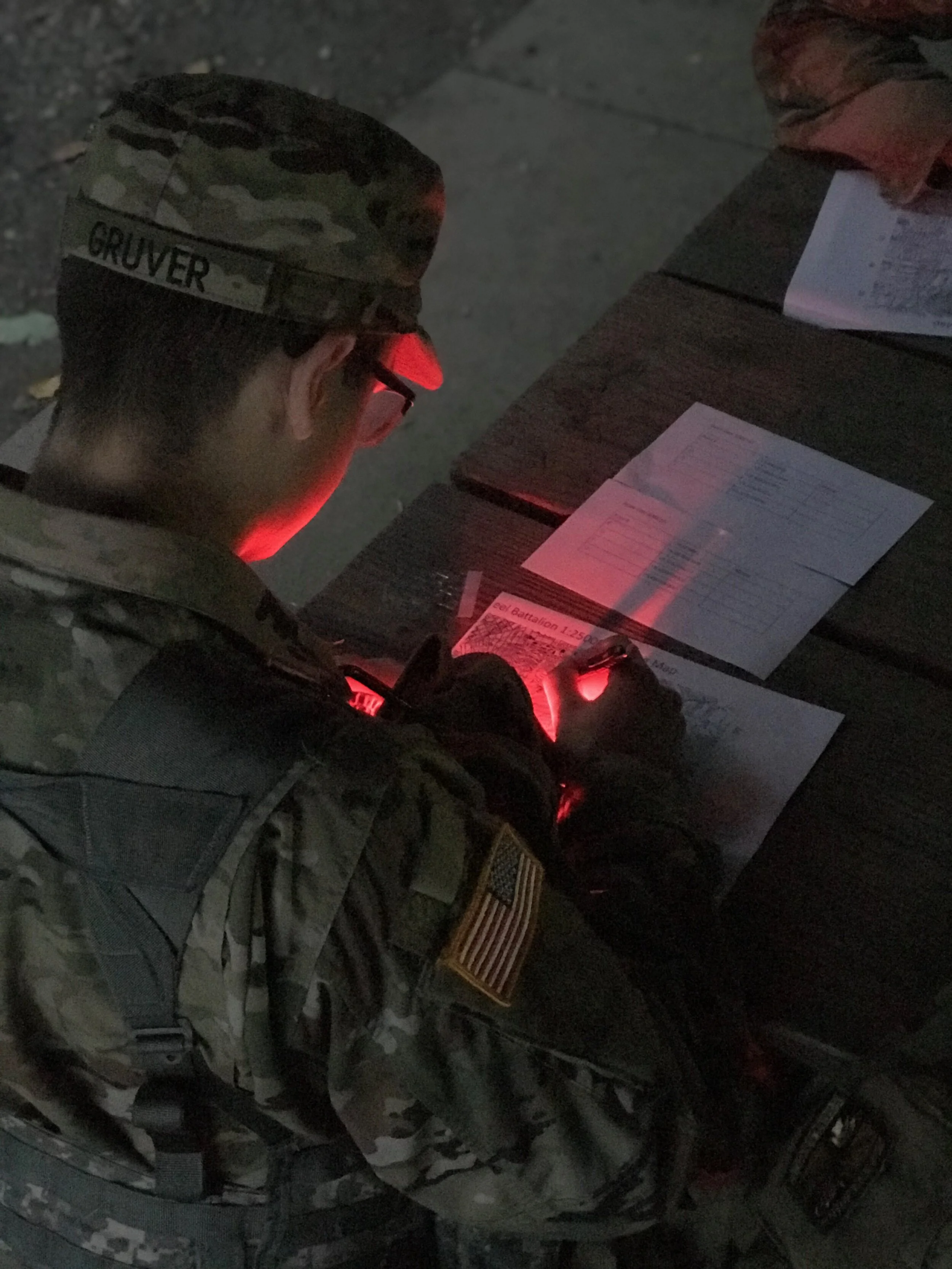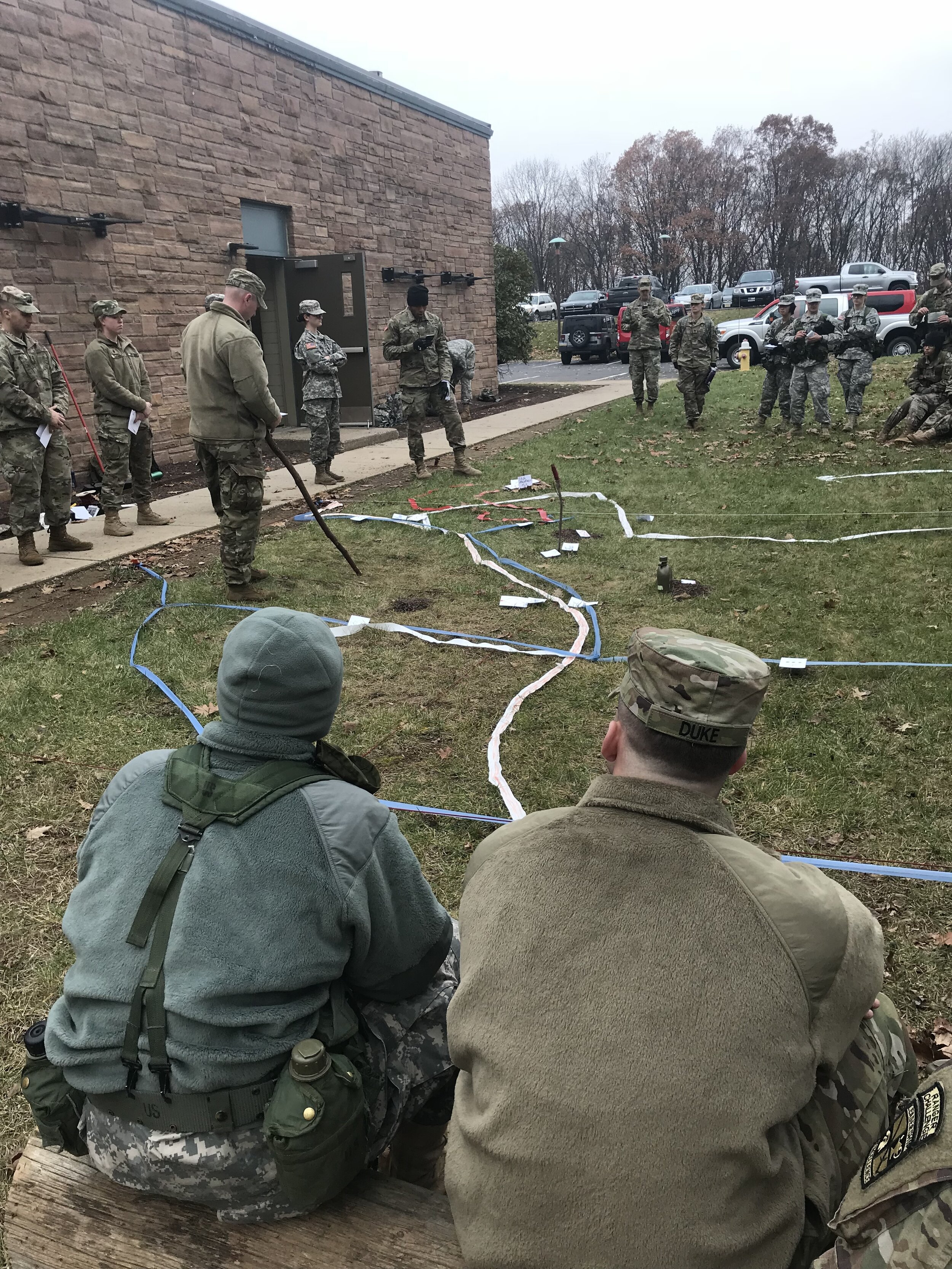
The Science Behind it All
Learn from experienced instructors about leadership, tactics, military history and ethics
MSI (Introduction to the Army and Foundations of Agile and Adaptive Leadership)
An introduction to the Steel Battalion and the Army. Classes focus on Army leadership and management principles as well as basic soldier skills like first aid and map reading, and familiarization with the U.S. Army's customs, courtesies, standards, and rank structure. Cadets also receive an introduction to basic leadership principles expected of military officers and are introduced to the career field opportunities available to Army officers.
MSII (Leadership and Decision Making and Army Doctrine and Team Development)
Second year programming provides cadets with the opportunity to attain the next level of proficiency in basic soldier skills, problem solving, and leadership. Courses introduce the operations order, a format for developing and communicating military operations, as well as further leadership development in effective communications, performance assessment, and counseling. Practical exercises, guest presentations, oral presentation techniques and historical analysis of military decision making are used to develop cadets and inform them about officer career field opportunities and responsibilities. Cadets assume cadet non-commissioned officer leadership roles within the cadet command structure as both team and squad leaders.




MSIII (Training Management and the Warfighting Functions and Applied Leadership in Small Unit Operations)
Enrollment in third year courses marks a commitment to completing the ROTC program and receiving a commission as a Second Lieutenant in the United States Army. To this end, cadets study and practice the leadership aspects of planning, use of the military operations order, briefing and presentations and executing small unit tactical operations. Cadets get hands-on practice on these skills through assigned leadership positions at the platoon and company level within the cadet command structure and during tactical exercises. Cadets receive extensive, regular feedback from peers, senior cadets and instructors. Instructors, alumni and guest speakers provide guidance and insight as third year cadets begin the career accessions process and begin to identify officer career field opportunities that appeal to them. These courses provide cadets their final preparation for the ROTC Advanced Camp normally attended in the summer between junior and senior years.
MSIV (The Army Officer and Leadership in a Complex World)
Cadets assume battalion level leadership roles within the cadet command structure and gain practical leadership experience as they lead the Steel Battalion through training and developmental programming. Cadets study the nature of military professionalism with respect to their future duties as officers and learn how to assess performance and to plan and supervise training using the Army's training management system. Cadets conduct independent study of complex case studies concerning leadership, ethics and law via readings and oral presentations. Topics of study include but are not limited to the Army Command Policy, Administrative Law, the Uniform Code of Military Justice, officer and enlisted evaluation and promotion systems, senior-subordinate relationships and performance counseling.








